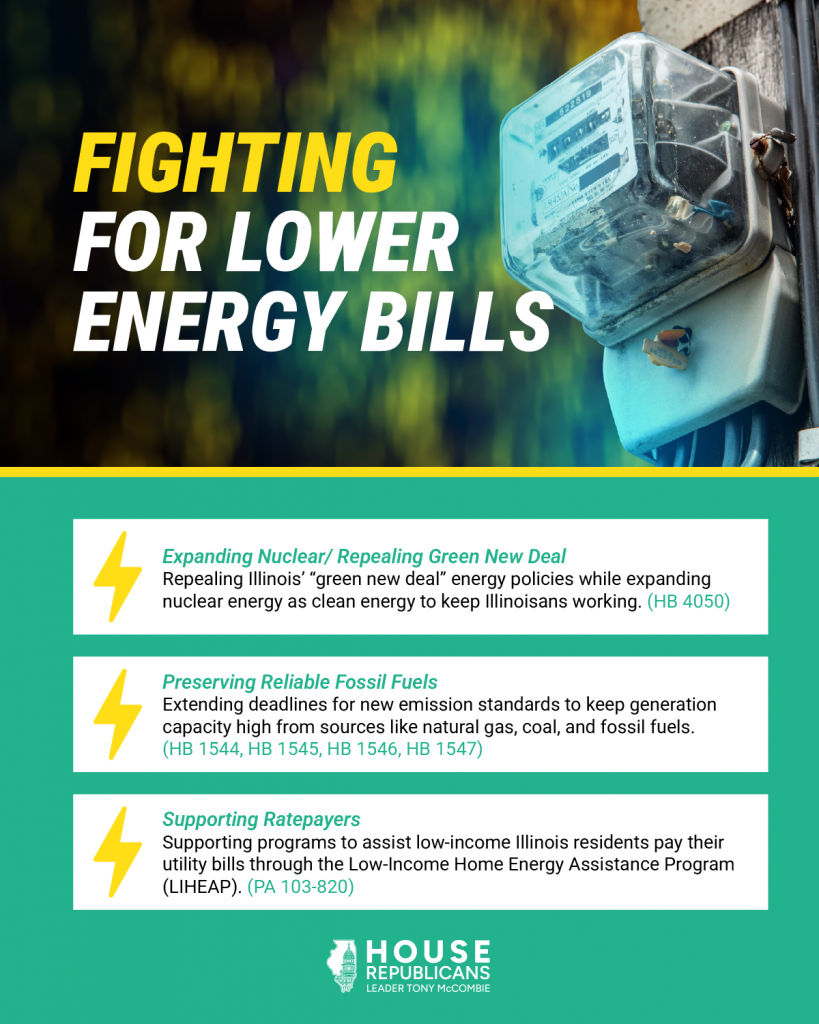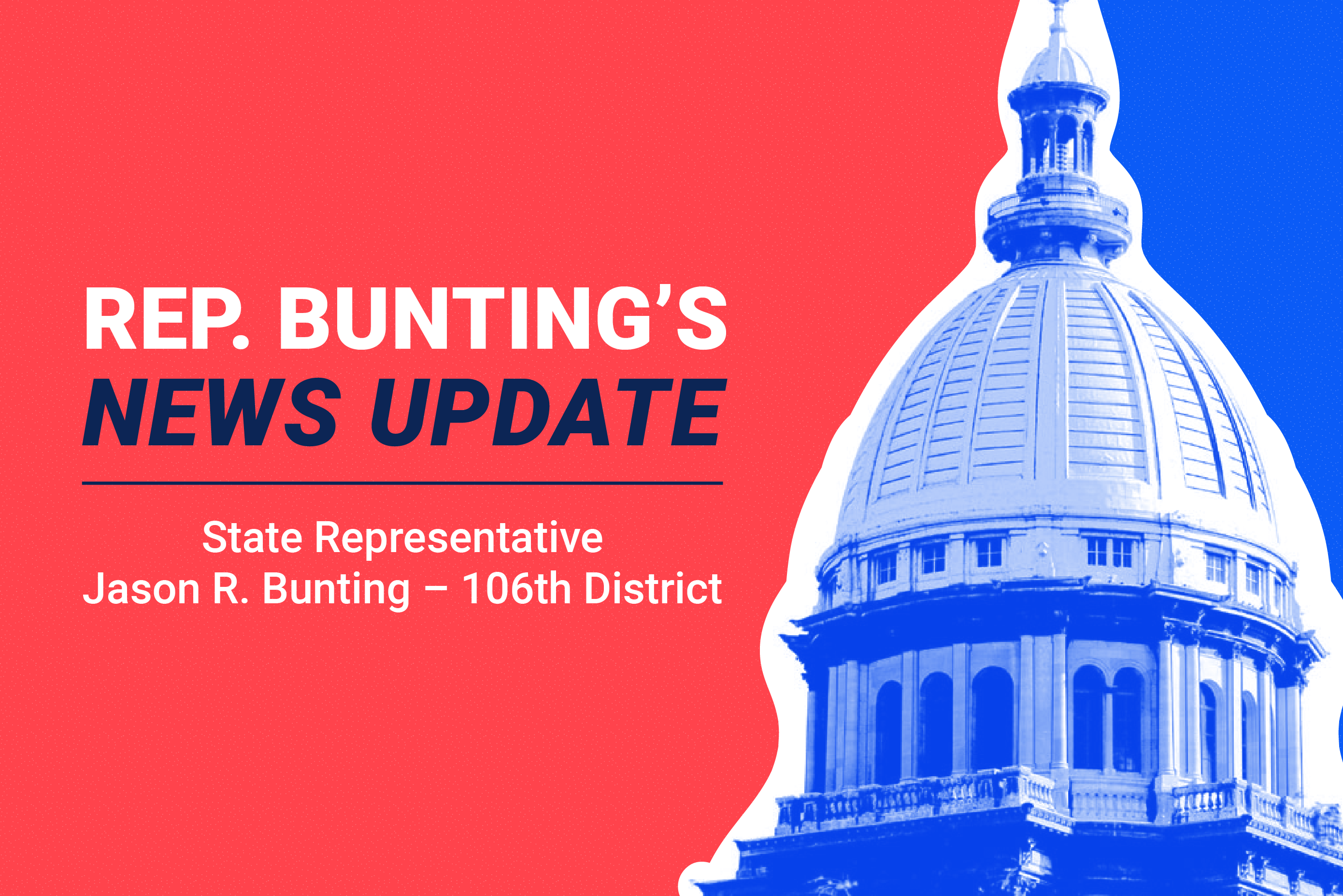In this issue:
- Working to bring down electric bills
- Direct college admissions program
- Another warning about unfunded pension liabilities
- Illinois headlines
Working to bring down electric bills
All over Illinois we have seen electric bills on the rise this summer, in some cases doubling.
Electricity bills in Illinois are affected in part by supply constraints. Many of Illinois’ coal-burning electricity generating plants are in the process of being shut down, causing utility companies to look for generation from other states to buy their electricity. The price of electricity which crosses state lines is not set by Illinois law, but instead by regional transmission organizations, such as the Midcontinent Independent System Operator (MISO), which informed Illinois utility companies like Ameren that they would have to pay very high prices for electricity this summer.
Illinois law allows utilities to pass these high costs along to consumer bills whenever part of our power supply crosses state lines. We have little choice in the matter because due to the shutdown of our coal plants, the alternative is brownouts or blackouts. MISO’s recent capacity auction returned a price of $667 per megawatt-day across all zones this summer. Last year it was $30.
Back in the spring I joined with other House and Senate Republicans in warning about this summer energy cost crisis. We asked for a review of Illinois’ current energy policy and offered solutions to prevent price spikes like the ones we are now seeing. Unfortunately, the majority chose not to take us up on our ideas.
House Republicans have proposed changes to the state’s 2021 Clean Energy and Jobs Act (CEJA) which led to the shutdown of many of the coal plants and the changes in electricity delivery. When the legislature returns to Springfield for the fall session in October, we need to address these new state laws which are playing a role in the heightened prices all of us are now dealing with.

Direct college admissions program
Illinois students now have the option of enrolling in a program to receive direct admission offers from Illinois public colleges and universities in the fall of their senior year.
The One Click College Admit program will allow Illinois high school seniors and community college transfer students to receive college acceptances to the state’s public universities by meeting only one criterion for admission: grade point average (GPA). The new program waives applications, application fees, essays and letters of recommendation for students.
High school seniors can begin getting automatic acceptances to Illinois public colleges and universities through the program (for enrollment in the fall of 2026) by creating a Common App account and entering some basic information and their GPA. For detailed instructions on how to participate in the program, operated by the Illinois Board of Higher Education, Illinois Community College Board and the Illinois Student Assistance Commission, click here.
Another warning about unfunded pension liabilities
The Commission on Government Forecasting and Accountability (CGFA) has released another report on the state’s five pension systems, which are collectively known as the state retirement systems. As with previous reports, it does not paint a reassuring picture.
Each pension system is supposed to have enough money on hand so that when it is invested at a reasonable rate of return the total will meet the payments to be made to those vested in the systems when they retire. The payments are known as “accrued liabilities,” and any time they exceed expected future assets they are considered “unfunded liabilities.”
CGFA’s recent report found that the state pension systems have a total unfunded liability of almost $144.3 billion. All five systems have less than half of the assets they should have. Taken all together, their funded ratio is 45.8%. This warning matches previous warnings from CGFA and others over the past several years. Others have used different formulas and calculations to determine what the unfunded liability is, and have therefore produced different numbers, but no matter how they calculate it, all agree that the unfunded pension liability figure for Illinois is over $100 billion.
Our current bill backlog
When a vendor provides the state with goods and services, they submit the bill to the Illinois Comptroller for payment. The Comptroller processes the paperwork and pays the bill when funds are available in the state’s checking account. Currently the total amount of unpaid bills is $1,689,280,273. This figure changes daily. Last year at this time the state had $1.7 billion in bills awaiting payment. This only includes bills submitted to the Comptroller for payment, not unfunded debts like the state’s pension liability, mentioned above, which is well over $100 billion.
Illinois headlines
Pritzker delivers windfall to trial lawyers at expense of job creators
IL Department of Human Services’ adverse audit draws legislators’ ire
Senate President appeals $10M fine for improper campaign contributions
Illinois State Police arrest five in human trafficking operation
